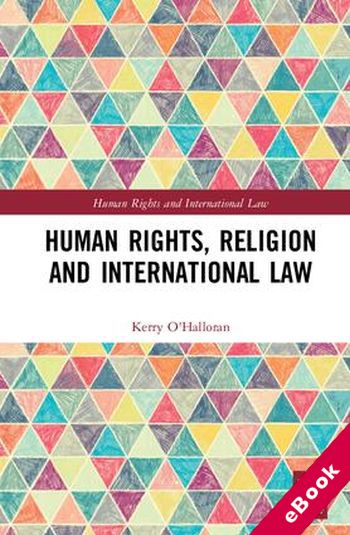
The device(s) you use to access the eBook content must be authorized with an Adobe ID before you download the product otherwise it will fail to register correctly.
For further information see https://www.wildy.com/ebook-formats
Once the order is confirmed an automated e-mail will be sent to you to allow you to download the eBook.
All eBooks are supplied firm sale and cannot be returned. If you believe there is a fault with your eBook then contact us on ebooks@wildy.com and we will help in resolving the issue. This does not affect your statutory rights.
In this book Kerry O’Halloran analyses a subject of international interest – religion – and examines related contemporary issues from a human rights perspective. The book takes the view that while the impact of Islamic State violence has dramatically demonstrated the destructive power of religious extremism for contemporary western societies, there are also good grounds for the latter to examine the extent to which their laws and policies – nationally and internationally – are contributing to religion’s currently destabilizing social role. It makes the case for a fuller understanding of the role of religion or belief and argues for a rebalancing of the functional relationship between Church and State both nationally and internationally.
Beginning with an overview of religion, including an examination of key concepts and constructs, the chapters go on to outline the international framework of related human rights provisions and note the extent of their ratification. It proceeds by identifying a set of themes – such as the Constitutional positioning of religion; law and policy in relation to secularism; faith schools; equality legislation and the religious exemption; and the tension between free speech and religion – and undertakes a comparative evaluation of how these and other themes indicate significant differences in six leading common law jurisdictions as illustrated by their associated legislation and case law. It then considers why this should be and assesses any implications arising.
This book will be of great interest to students and scholars in the fields of law, religious studies, political science, human rights and social policy.